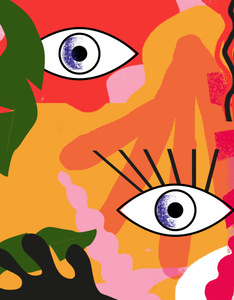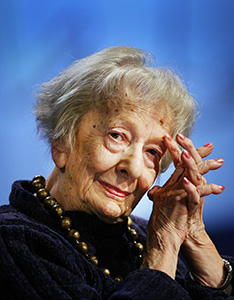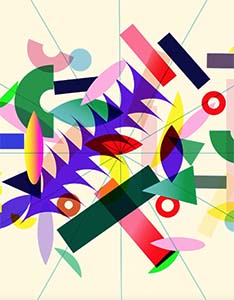Nearly 100 events in more than 20 countries. The international cultural programme of the Polish Presidency of the Council of the European Union will sweep across Europe
Beginning in January 2025, Polish art and culture will take centre stage all across Europe. In celebration of Poland’s presidency of the Council of the European Union, between January and June 2025, nearly 100 cultural events such as concerts, plays, exhibitions, film screenings, and literary events will take place in more than 20 European countries. Organised by the Adam Mickiewicz Institute under the motto “Culture Sparks Unity”, the programme will showcase the most exciting trends in contemporary Polish art, focusing on the new, emerging generation of artists. The events, which will be held in both EU member and potential member states, are aimed to promote the notion of solidarity and international collaboration.
“Following months of preparation and developing partnerships with the most important cultural centres in Europe, our programme will be presented in more than 20 countries. While it will feature several established and acclaimed artists, our main aim is to use this opportunity to boost the visibility of young Polish artists on the international arts circuit. The programme will spotlight not only artists born in Poland, but also those who were forced to leave their home for different reasons and are now working in Poland today. This demonstrates the significant role our country plays on the international cultural scene by providing a safe space for creative expression for those who face persecution or whose countries are presently at war. Constructed in collaboration with artistic communities from all over Europe, the programme prepared by the Adam Mickiewicz Institute is intended to encourage further creative exchange across borders” says Olga Brzezińska, deputy director of the Adam Mickiewicz Institute, responsible for the organisation of the international cultural programme.
What sets apart the cultural programme of the Polish Presidency is not only the participation of artists and creators of other nationalities, but also its broad appeal. In addition to the Member States, events will extend to the European Union candidate countries: Serbia, Georgia, North Macedonia, and Moldova. Because of the violence waged by Russia, it will not be feasible to schedule events in Ukraine. Even so, artists from the war-ravaged areas will have a strong presence across multiple events.
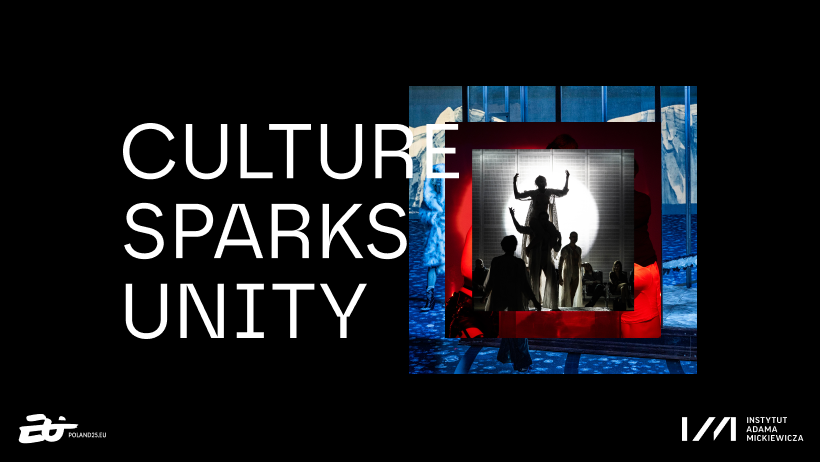
The interdisciplinary programme will encompass the fields of visual arts, photography, film, music, literature, design, illustration, and even street art. As part of the “Solidarity Street Art” project, leading artists from Poland and Ukraine will conduct workshops for local youth as well as create large-format murals and mosaics focusing on the power of unity. A solo exhibition by Ada Zielińska, one of the most outstanding Polish photographers of the youngest generation, will open in Brussels at the end of January as part of the Photo Brussels Festival.
Works by Polish and Hungarian photographers exploring the phenomenon of kinship in Central and Eastern Europe will be presented in Budapest in mid-February in an exhibition entitled: “European Kinship. An Eastern European Perspective.” In April, the exhibition “Exuberance. Women’s Art in the 21st Century,” will open in Moldova. It will feature work by young female Polish artists. At the same time, Małgorzata Mirga-Tas will present her new work at one of the largest and oldest museums in Belgium. At the invitation of the Royal Museum of Art and History, the artist will create a large-scale woven textile inspired by the Museum’s collection of tapestries.
As part of the “Solidarity on Screen: The Polish Presidency Film Review” series, Polish films will be screened at several European art house cinemas as well as film festivals in Belgrade, Budapest, Munich, Brussels, and Vienna. In just six months, more than 30 productions by Polish artists including Łukasz Twarkowski, Gosia Wdowik, Marta Górnicka, Krzysztof Warlikowski, and Agata Siniarska will be shown on major European stages. Krzysztof Wodiczko’s mapping will be shown at the photography festival in Lille, and Agnieszka Polska will present her debut play, “The Talking Car,” at Printemps des Comédiens in Montpellier.
Also as part of the Presidency, a unique performance and dance programme curated by Joanna Leśnierowska and Marta Szymańska will be hosted in Germany and Cyprus in collaboration with the HELLERAU European Art Centre in Dresden and Dance House Lemesos in Limassol. It will feature a series of workshops designed to strengthen the dialogue and collaborative spirit within the performance scene, which will also engage local communities. Elsewhere, the prestigious Bazaar Festival in Prague will feature the performance “The Sculptresses” by Weronika Pelczyńska and Magda Fejdasz, as well as Hana Umeda’s moving performance “Rapeflower”, which combines the tradition of Japanese jiutamai dance with modern choreographic techniques.
The Presidency’s cultural programme will also feature performances by Polish musicians: ranging from the most outstanding classical music performers to the Polish contemporary techno scene. In mid-February, Brussels will host Poland’s internationally renowned music event, the Unsound Festival, which celebrates the latest trends in Polish electronic and experimental music. Wacław Zimpel, James Holden, Zamilska, Trupa Trupa, and Atol Atol will perform at the “Peel Slowly and See” festival in Leiden, the Netherlands. At the end of June, the Programme’s closing event will be held at Flagey in Brussells. The audience will have the opportunity to hear the inaugural performance of the “Unity” concert composed especially for the Polish Presidency of the EU Council by Aleksander Dębicz, the outstanding pianist and composer. Among others, the world-famous Polish countertenor Jakub Józef Orlinski will perform on stage.
As part of the “Polish Music on Your Playlist” project, the organisers have compiled playlists dedicated to Polish music, which will be available on Spotify. Also to celebrate Poland’s Presidency, a dedicated selection of the latest Polish productions will be available on the Netflix streaming platform from January.
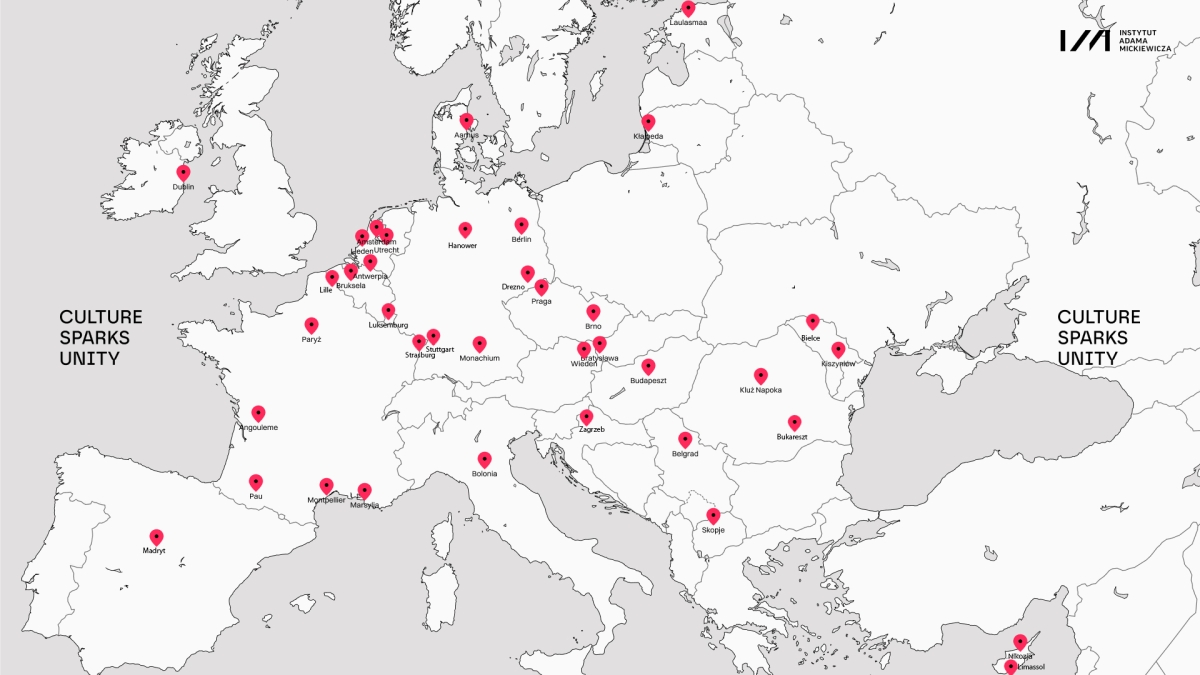
These are merely a few highlights from the Programme comprising almost a hundred events that will take place across Europe over the next six months. The program was developed in cooperation of partners from both Poland and abroad, as well as support from Polish Institutes and local institutions. A detailed itinerary will be available from the beginning of January on a dedicated website run by the Adam Mickiewicz Institute. Updates about the programme’s development will be regularly posted on the Institute’s social media accounts.
For more information, please see: www.iam.pl
